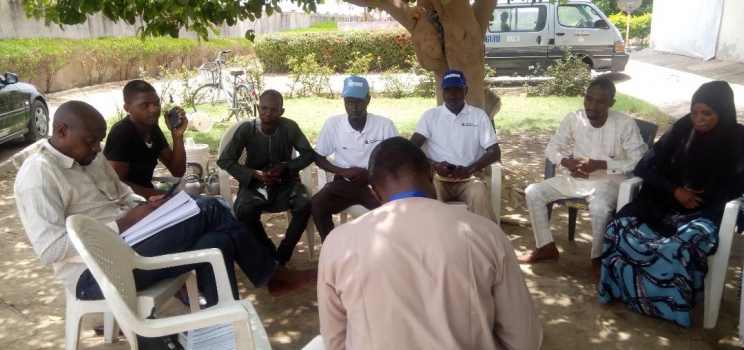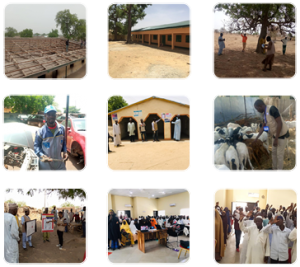The Centre for Community Development and Research Network (CCDRN) is currently carrying out a study to assess the existing and prospective livelihood opportunities in communities selected for the early return of IDPs in Borno State
The research, which is being conducted by Centre for Community Development and Research Network, (CCDRN) at the behest of Managing Conflict in Nigeria, (MCN), a project funded by the European Union and implemented by the British council is expected to lead to a deeper understanding of the existing and prospective livelihood opportunities in communities for returnees and IDPs and implications for peace, security and public safety
“The outcome of the assessment will be provided to donors, international development organizations, INGOs, local and state CSOs, and the state and national authorities to assist recovery, resettlement and livelihood support efforts and its latent and manifest roles in peace building, security and public safety in conflict areas both in the short term and long term” says the CCDRN research team lead, Umar Yusuf
“In particular, through this project, we will facilitate enhanced awareness of the existing and prospective livelihood opportunities in communities selected for the early return of IDPs in Borno State” he adds
The research project which is currently ongoing is expected to lead to increased knowledge on the implications of the existing and prospective livelihood opportunities in communities for peace, security and public safety in Borno State; Enhanced awareness on the existing and prospective livelihood opportunities that promote social cohesion, resilience and reintegration in communities affected by displacement in Borno State and an increased awareness to understand the likely inter group conflict to arise from the new economic opportunities.
Borno State, has been worse affected by the insurgency, many of the population have been displaced and live outside their communities, mostly in Maiduguri and its immediate environs. The gains in counter-insurgency operations recorded since 2015 when the military and para-military operations increasingly led to the recovery of territories
captured by the insurgents has not been followed by expected return of displaced persons. The Borno State Government is keen to implement phased return to communities in furtherance of its recovery, reconstruction and reintegration programme. However, there are concerns about the feasibility of planned return of IDPs given lingering security challenges. Also of concern to stakeholders are the prospects of returnees accessing livelihood opportunities and the implications of uncertainty of livelihoods for conflict dynamics, peace and security.
“The research is expected to address all these concerns and further facilitate enhanced advocacy on government, international development actors and community governance institutions in mediating access to livelihood opportunities to support greater conflict management, humanitarian and development programming in the selected LGAs” says CCDRN’s Data Analysts George Aijehi.
Managing Conflict in North East Nigeria (MCN), a programme being implemented by the British Council is aimed at enhancing the capability of state and community level conflict management to prevent the escalation of conflict into violence.

